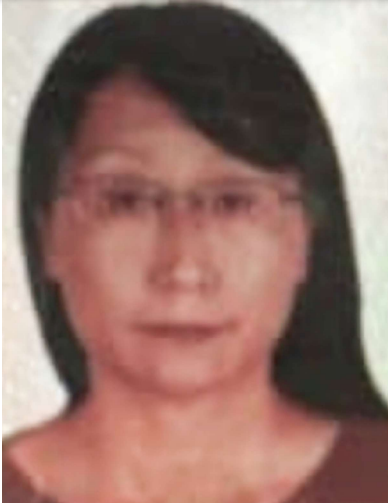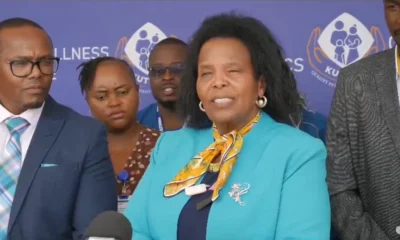AS reported by The NewsHawks last week, Zimbabwean authorities are accused of protecting a controversial Chinese businesswoman, Li Song, who is currently involved in an illegal cyanide scandal, revealing her connections that penetrate political, diplomatic and business circles, while police and the environmental agency are reluctant to take action despite evidence of wrongdoing.
RUVIMBO MUCHENJE
It now turns out that Li is also involved in wildlife trade and deals, particularly concerning elephants, earning herself the moniker Ivory Queen.
This comes amid allegations that the police and Environmental Management Agency officials have been compromised by Li, a spooky and dodgy businesswoman currently facing charges of fraud, perjury and salting away foreign currency from Zimbabwe to her offshore Chinese accounts.
After her cyanide scandal in Bulawayo recently, which we have been reporting on since two weeks ago, and her murky wildlife deals, some involving baby elephants, the key question is: who is Li?
An investigation by The NewsHawks shows that Li is a dodgy Chinese businesswoman who came to Zimbabwe over 10 years ago and settled herself into business in various sectors, including leather processing, mining and wildlife trade.
Over the years, she has made money, used it to establish and fund an elaborate network of political and business connections, making her untouchable.
Although she has been described by sources in Beijing as a “small Chinese koi in a Zimbabwean political and business pond”, her wildlife stock-in-trade and underworld business networks have made her an influential player, particularly because it is also said she has local political, business and security brokers “in her pocket”.
Although her history remains significantly murky, details about Li are now fast emerging.
Li was born on 20 January 1972 in Henan province, the third-most populous province in central China’s Yellow River valley with a population of over 100 million people.
This means makes her 52.
During the probe, The NewsHawks obtained her background information, including her Chinese passport and Zimbabwean identity card details.
She arrived in Zimbabwe more than 10 years ago and established herself in the local business sector. She then met and married an Italian businessman, Francesco Marconati, also described as controversial.
Li and Marconati later established Eagle Italian Leather Products (Pvt) Ltd in Marondera in 2014, producing leather products and other accessories for the Zimbabwe army, police and prisons.
As a result, she established deep links with state security service institutions and senior government officials. Her connections run up to the level of ministers and Office of the President and Cabinet.
Apart from running Eagle Tannery, where she was a director, Li also ran Queen’s Mine with her ex-husband Marconati, a gold mine located 55 kilometres northeast of Bulawayo along the Bulawayo-Eastnor Road.
In 2015, she established Sino-Zim Wildlife Foundation as chairperson. It was a joint venture between Chinese conservationists and the Zimbabwe National Parks and Wildlife Management Authority purportedly to protect wildlife.
The foundation hit the ground running with a donation of US$500 000, and a small plane for use in anti-poaching activities. The plane came with trainers to ensure that ZimParks has personnel to pilot on its own.
“Sino-Zim Wildlife Foundation will coordinate efforts of China to mobilise support for conservation in Zimbabwe,” she said at the time. “We are going to work hard to resolutely fight poaching and illegal transportation and sale of animal products.”
However, her record is riddled with allegations of corrupt and savage wildlife deals.
Now Li is currently is the eye of a big storm for illegal buying, transportation and storing of cyanide — a very dangerous fast-acting chemical used in mining and by poachers to kill wildlife — in violation of health and environmental laws and public safety protocols with impunity.
The illegal 40 tonnes of cyanide, including a 1.1 tonne pallet secretly moved into a separate storeroom for covert operations, was discovered at a warehouse in Bulawayo. It is now linked to an attempt to cover up her tracks on illegal externalisation of funds in court as part of manufactured evidence and poaching, especially of elephants.
Zimbabwean authorities are unwilling or unable — or both — to act against her.
Apart from the cyanide scandal, Li currently stands accused by her ex-husband Marconati of serious charges of fraud, perjury and illegal externalisation of funds.
The NewsHawks is on her trail and investigating who she really is since she is so well-connected up to the Office of the President and Cabinet, ministers and high government officials, security service chiefs, diplomats and business executives.
Further investigations show that Li is the woman who has been in controversial Zimbabwean elephants sales that benefit only corrupt dealers and politicians.
In 2016, Zimbabwe sold 35 baby elephants to China, which the authorities described as “sub-adults”.
It was reported as the worst kind of wildlife abuse as the animals were torn away from their mothers in the wild and exported to zoos in China.
The calves, some as young as two years old, were first held in pens in the Hwange National Park, while travel crates were prepared and documents finalised for their more than 11 000 kilometre transportation.
That was the fourth time since 2012 that Zimbabwe has captured and exported baby elephants to Chinese zoos — a total of 108 elephants — despite opposition from other African countries, elephant experts, and non-governmental organisations, including the Humane Society of the United States and Humane Society International (HIS).
In October 2017, HSI obtained exclusive footage of 14 young elephants awaiting export to Chinese zoos, after their capture from the Hwange National Park by ZimParks.
The footage showed the calves being beaten and kicked as they were being sedated and taken away to the park’s holding pens.
Several juvenile elephants in earlier shipments had died during transit or after arrival. It was shocking to see photos of the few surviving baby elephants, standing alone in dark, barren cells after their arrival in China.
The exports were even more disturbing given that China and Zimbabwe have in the past failed to conform with requirements under the Convention on International Trade in Endangered Species (Cites).
In 2016, when China sought imported elephants from Zimbabwe, a team of Zimbabwean inspectors who travelled to China to assess the facilities the elephants would be housed in found them inadequate.
The inspectors reported that most of the zoos showed signs of poor treatment of the animals and recommended the elephants remain in Zimbabwe until appropriate holding facilities in China were completed and assessed for compliance.
Despite this recommendation, the elephants were exported to China without such reforms being implemented.
Zimbabwe’s repeated capture and export of infant and juvenile elephant calves sparked global condemnation because of the horrific conditions under which the young elephants are kept.
Elephant expert Dr Joyce Poole, widely regarded as the world’s leading elephant communication specialist, at the time described the activities as “tragic and morally reprehensible”.
The African Elephant Coalition (AEC), a coalition of 32 African elephant range states, repeatedly spoke out against the capture and trade of wild baby elephants for captivity.
HSI co-led a report on challenges to the trade in wild-caught African elephants with the AEC, and our staff is now attending the AEC’s summit in Kenya where we expect to hear strong objections raised over this most recent and brutal capture of wild baby elephants.
In defence of the practice, then Zimbabwean minister of the Environment Oppah Muchinguri- Kashiri said the country intended to increase the rate and range of wildlife exports as part of a scheme to raise funds for conservation.
“The Chinese have inquired about more elephants, baboons, hyenas, lions, among others, and we will sell them more without hesitation. We are not going to apologise to anyone,” she said.
In January 2018, HSI/Africa and 33 partners submitted a letter to Zimbabwe’s President Emmerson Mnangagwa pleading for a halt to the horrific abuse and practice of capturing elephants from the wild for captivity.
African elephants are currently listed as a threatened species with less than 500 000 remaining in the wild, and the global community is increasingly in agreement on the need to conserve these animals.
Keeping elephants and other wildlife alive is key to economic progress in many African nations, including Zimbabwe, because millions of tourists trek to these countries to see them, especially through the Zambezi Valley from Mana Pools in the north down to the Victoria Falls in the northwest via Hwange National Park. There are also a lot of elephants in Gonarezhou in the remote southeast corner of Zimbabwe in Masvingo province on the border with Mozambique.
By ripping baby or young elephants from their mothers and sending them to lives diminished by captivity in zoos overseas, Zimbabwe set itself on a path that will not only decimate its wildlife, but will also further compromise its standing in the eyes of the world.
Li also exports animal hides and crocodile skins, as well as owning an array of other companies, as indicated on the CITES data base. She uses various routes across Africa to export her loot.
Various reports say Li has a variety of dubious business ventures and unethical business links in Zimbabwe, in partnership with various ministries and officials across Zimbabwe.
Li is said to have played an active role in identifying markets for the “mass exportation” of Zimbabwean elephants.
Other animal activists, like the Zimbabwe Conservation Task Force (ZCTF), have in the past also implicated Li. “We believe she brought some wealthy Chinese people into the country in connection with the exportation of the elephants and she is apparently connected with high-ranking officials in the government ministry (environment),” said the ZCTF at one time.
She shuttles between her home in Shanghai, her African base in Harare and her North American base in Ottawa. She is a fixer who acts on behalf of various Chinese and Middle Eastern wildlife buyers across Africa.
In wildlife trade, a quota is set and certain companies or individuals are given the permit to trade. In Zimbabwe this is the company and the individual who has the sole rights to trade in elephants dead or alive.
The controversial sale of elephants from Zimbabwe to other countries, mostly China, forcefully came back to the spotlight when a Swiss author and filmmaker Karl Ammann uncovered not only shocking cruelty against animals, but also deeply-entrenched and often dangerous levels of corruption and other criminal activity.
Ammann investigates and documents vast amounts of unaccounted for cash connected to the trades.
These revelations also did little to lessen criticism of Zimbabwe’s decision to capture wild elephants and sell them off to foreign zoos.
The numbers did not add up.
Zimbabwe exported 32 young elephants to China in 2019. The sale caused an uproar as it happened amid legal action to halt the shipment. Zimbabwe also went ahead with the export just before CITES implemented a landmark rule change that would have made it near-impossible to do that.
ZimParks released a list of elephant sales since 2016.
On the list, ZimParks declared the income it earned from the elephants and what it spent the money on. It also named individuals in connection to the trades.
ZimParks named Liang Zhao, a Chinese diplomat, as being involved in the 2016 and 2019 trades. It named Qin Wei and Elske Burger in the 2017 and 2018 trades, respectively. Most of the sales were to venues in China, with one additionally to the United Arab Emirates.
ZimParks declared an income per elephant of between US$31 000 and US$41 500. But Ammann, who has been investigating the international trade in elephants for years, brought attention to trading documents connected to the sales. They appear to show that some of the Chinese recipient venues declared a cost per elephant of around US$125 000.
That seemed to be the case, for example, for both Longemont Animal World and Xiongsen Animal World. These venues received the elephants controversially sold in 2019, but ZimParks said the payment it received for the elephants going to those venues was US$31 000 each. This means a discrepancy of US$94 000 per elephant in those cases.
Ammann further highlighted a document that showed China set “duty free import quotas for elephant, rhinos and pretty much everything else” in 2019.
As such, he said, there would be “no need for a buyer to under- or over-declare the purchase price”.
Meanwhile, the filmmaker says a “well-informed animal dealer” in South Africa told him that there was a “US$100 000 price tag” on the elephants Zimbabwe sold to Dubai Safari Park in 2018.
But Zimbabwe said the payment for each elephant going there was US$41 500. So there was a US$58 500 discrepancy per elephant in that transaction.
A major concern in relation to these unaccounted for funds is that allegations of bribery and kickbacks abound within the CITES wildlife trading system.
Li is in the mix of these deals, especially on the sale of Zimbabwean wildlife, and other dodgy business ventures.


 Business2 weeks ago
Business2 weeks ago
 News1 week ago
News1 week ago
 News1 day ago
News1 day ago
 News2 weeks ago
News2 weeks ago
 Business3 days ago
Business3 days ago
 News1 week ago
News1 week ago
 Entertainment2 days ago
Entertainment2 days ago
 News1 week ago
News1 week ago









